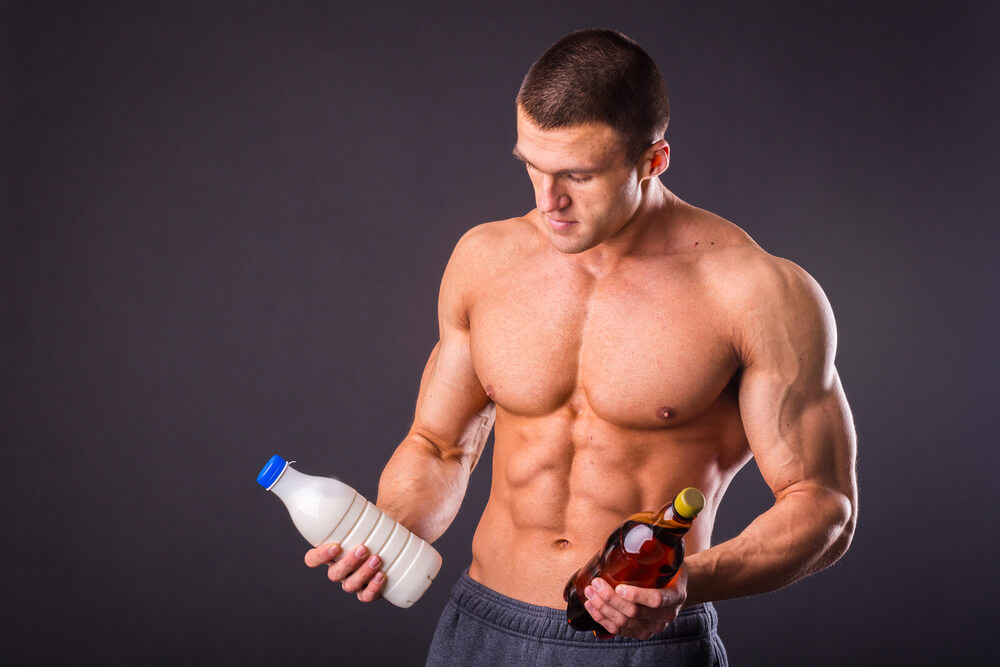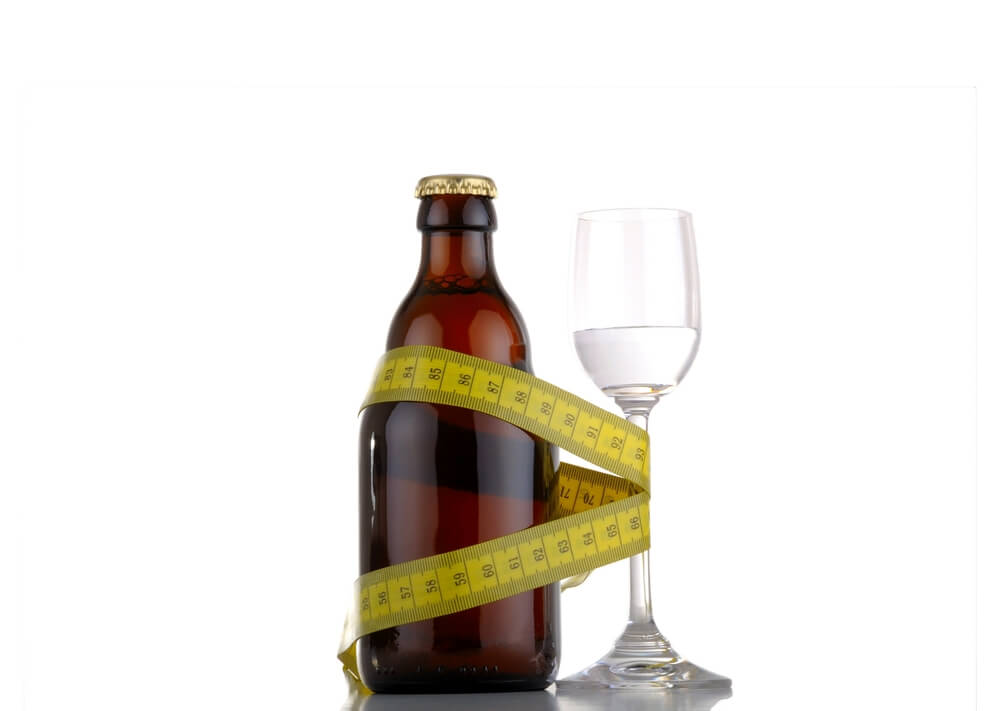
Alcohol And Weight Loss: What’s The Full Story?
What exactly is the relationship between drinking alcohol and weight loss? What about muscle strength or how quickly your muscles recover and even your hormone levels? After all, it seems like alcohol and your diet/weight loss program may have a hate/hate relationship.
Alcohol and health/fitness don’t exactly go hand in hand. It’s a topic that everyone in the health and fitness world is always bringing up. Everyone has their own opinion about it, but what are the facts?
Most of us know having a few drinks every once in a while isn’t going to kill us. In fact, having a drink or two each day might have some benefits. No, we aren’t talking about drunk-related benefits. With the right kind of alcohol, such as red wine, you might find yourself enjoying a few different perks. Not bad right?
These advantages range from better cardiac function, improved blood lipids and even improved insulin resistance. The fatty compounds that are found in your blood are known as blood lipids. These are pretty important because they cut down your risk of various types of heart disease. If alcohol can help cut down on that risk even more, that’s a pretty big perk. Sounds great.
But the question remains where is the line between healthy perk and working against all your hard effort with diet and exercise?
Alcohol And Weight Loss: Moderation Is Key
There’s a fine line between an appropriate amount and an inappropriate amount when it comes to drinking alcohol. If you cross that fine line, you’re headed towards trouble. Even too much of the healthiest alcohol leads you right towards a dangerous drive home or a few words you wish you could take back. Plus, it can lead to some serious trouble. We are most concerned with the impact that alcohol has on your health and fitness.
Think about it. You head out for a fun night with your buddies. You’re pounding beers. What comes next? Food. So you might stray off your diet a bit. You may stop by for a slice or two at the local pizza place and even though you worked out that day, you’re going to stay out later than usual.
Fast forward to the next morning.
You wake up with a bad headache, you’re exhausted, your entire body hurts, you just feel crappy overall. The older you get, the more time it’s going to take to recover from these nights. You aren’t going to perform as well as you usually do at the gym.. if you go at all. Who knows how long it will take you to get back to where you were. We all know that getting back in shape after you’ve been out of shape is a pain.
By the time you’re really refreshed and feel normal again, you probably have another night lined up and so the cycle continues…
You just can’t put on your best performance at the gym if you’ve been out popping bottles the night before.
But that’s just the side notes that come along with drinking. What we want to focus on here is how much alcohol you can drink before it starts to negatively change your weight loss process? We also want to dive into what alcohol does to our muscle growth.
Do you know how much sleep you need for muscle recovery? Recovery is a big part of the game. Sometimes the lifestyle, not just the alcohol itself, can be the enemy of your fitness goals.
We’ve touched on the numerous ways where light to heavy alcohol drinking can mess with your body. Let’s focus on what it does inside, so we can understand more about alcohol and weight loss.
Alcohol And Weight Loss: The Carb Problem
Much like all the fire that comes with carbs, there’s some pretty intense criticism that comes along with alcohol consumption and health/fitness. The truth about carbs is that it might not be that simple. But, a lot of people live by this motto: If you drink alcohol, you are going to get fat. Period, just like that. As an added perk, you’re probably going to lose all of your muscle tone you’ve worked so hard for. Sounds pretty crappy, huh?
But, a look at some epidemiological research shows that occasional and moderate consumption of alcohol is generally connected with a lower body weight.
Yep, you read that right. Those with lower body weights tend to drink alcohol occasionally.
This isn’t exactly new news. In 1985, a study was published in the American Journal of Clinical Nutrition regarding the subject.
The study took 1,944 volunteers, ranging from ages 18 to 74 and took a closer look at their diets. The researchers found some pretty solid results. They found that an increase in calories just from ethanol (aka alcohol) by itself didn’t cause any more weight gain than what would happened if those calories were coming from things like fats, carbs, protein or anything else in your diet.
Because these people drank alcohol on a regular basis, they ended up consuming 16% more calories versus those who didn’t drink at all. It’s important to mention they had the same level of physical activity as the non-drinking team.
But, the drinking team didn’t get any fatter than those on the other team. Just these results alone can show you that alcohol might not be as bad for us as we thought. But let’s take a look at another study just to find out.
Does this mean we should all run to the liquor store? No. Does this mean that the impact we see from alcohol may not be limited to the drink itself but be more linked with the lifestyle? Possibly.
Alcohol And Weight Gain In Women
It’s no secret that choosing the right workout and diet for women is often a bit different than men because of how our bodies respond uniquely to various stimuli. A different study decided to look at overweight women.
They took one group and had them consume 10% of their calories from white wine. The other group had a bit less desirable drink to consume: grape juice. So 10% of their daily calories came from grape juice.
After this went on for 3 months, the results were pretty clear. The group that was lucky enough to be drinking the white wine lost 2 pounds more than the group that was stuck with the grape juice.
But why is this happening? Is it the alcohol itself that’s preventing weight gain from happening? Or is it something else?
The most likely reason why alcohol didn’t cause weight gain in these studies is because of one key factor – alcohol can actually suppress your appetite for food.
If you have a sweet tooth, and treat yourself to a glass of white wine, it might be enough to keep your sweet tooth at bay. But like we said, the precise mechanisms behind it all aren’t really that clear just yet. Alcohol might also have some kind of hand on insulin sensitivity. Obviously more studies need to be done.
Now look we aren’t telling you to run out to the bar or the liquor store and get hammered. It won’t serve your weight loss plan, as much as we would love to tell you otherwise. While it may suppress your appetite, it can eventually alter your weight loss efforts, just not in the most direct way you might have thought.
Managing The Fat Storage Problem With Alcohol And Weight Loss
We’ll give you a quick physical test. A simple fact: alcohol in itself can’t be stored in the body as fat. But here’s what it can do. It is capable of blocking fat oxidation. This is something you should care about because this blockage is going to speed up the rate in which your body is able to store dietary fat as body fat. Which means you’re going to have more fat.
So like we said, it isn’t the calories from the actual alcohol that’s going to make you pack on the pounds. Plus, all the food that comes along with the alcohol (you know, drunk food). It’s pretty hard to say no to a slice of pizza or a burrito when you’re 8 beers in.
You don’t have to restrict yourself entirely. Instead, if you want to enjoy alcohol while you’re on a diet and trying to lose weight, set a rule for yourself.
Promise yourself you don’t drink more than once per week. In order to cut back on extra fat from lingering around, try these tricks.
First thing’s first. The day that you’re going to drink, cut back on your overall dietary fat consumption. You also want to avoid really fatty foods when you’re enjoying your alcohol. Next, make sure you get a large majority of your daily calories from mostly protein. You can mix in carbs but just try to get most from protein.
Choosing The Right Alcohol Keeps Your Goals In Clear Sight
Also, be smart about your choice of a beverage for the night. Don’t reach for the drinks that are high in carbs, like all the fruity tropical (and yes delicious) drinks, including beer (sorry). Instead, stick with dry wines (you’ll get a taste for them, we promise) or clear spirits.
These simple but critical steps can make all the difference between you enjoying a few drinks every week without wanting to feel like death. Plus, you aren’t going to completely sabotage the effort you’ve put into your diet and fitness plan. It’s a win all around. Nice.
In addition to concerns over alcohol and weight loss, there may be other issues with testosterone levels. Unfortunately, this is proving to be true. There is plenty of evidence that shows that alcohol suppresses testosterone levels. But to what extent?
TNO Nutrition and Food Research Institute wanted to take a look at this for themselves. They looked at 10 men who consumed around 30 to 40 grams of alcohol on a daily basis. To put this in perspective, that’s about 2 to 3 beers, 10 to 15 ounces of wine and 2-3 ounces of liquor. Around the 3-week mark, the researchers tested the men’s testosterone levels. The levels had dropped about 7%, which wasn’t too bad. Still not desirable!
A different study, which looked at 9 men, had these volunteers drink 60 to 70 grams of alcohol following a workout. We would have signed up for this one too. Anyway, it didn’t show any effects on testosterone levels within the 5 hours after exercising.
Post Workout Alcohol And Weight Loss
What would happen if we upped that post-workout amount? Let’s see.
The University of Helsinki did. They gave 1.5 grams of alcohol for every kg of body weight. Yeah that’s kind of a lot! They gave this to 8 pretty healthy men between the ages of 20 and 26. They were shocked to see that testosterone levels dropped by a crazy 23%. This was discovered between the 10th and 16th hour after they had started drinking. And it doesn’t stop there. Their Cortisol levels were increased by a whopping 36% and the section of growth hormones was extremely suppressed.
Another study was also conducted (by the same school) and they found the same results. Having a big drinking session after working out is horrible for your testosterone production levels. If you’re looking for the right things to do after your workout, we can help with that. Needless to say, having a killer session at the gym, followed by 8 beers with your shake isn’t exactly the best idea. Surprised?
So like we mentioned, if you have a few drinks occasionally, it’s not going to kill you. But drinking after your workout is extremely counterproductive. If you’re going to indulge in alcohol, you might want to make it happen on your cheat day.
About Alcohol And Muscle Recovery
Finally, we’ll dive into how alcohol affects not just your muscle recovery, but your performance as well.
In both rat and vitro clinical studies, alcohol can actually impair the protein synthesis process. A lot of people believe this means that alcohol is going to halt your workout right in its path, preventing you from building up your muscles and speeding up muscle loss.
But here’s the thing – that isn’t exactly true. You can’t compare a rat to a human and the other way around. We have two totally different metabolic systems.
When you look at humans (not the rat kind, just regular old humans), you’ll see that alcohol only really wastes away with muscle in one specific case – and that’s in alcoholics. If you’re guzzling down 7 or more drinks each day, you’re going to have problems building muscle. You’re probably going to have a ton of other problems too, so muscle growth is the least of your concerns.
There have been countless studies done, including one by University of Massachusetts and Aarhus University, that proves that alcohol doesn’t have that much power when it comes to cutting back on strength or causing damage to muscles. Again, this does not mean that a lifestyle around drinking isn’t going to have a whole bunch of other downside effects on your progress.
Conclusion
While there needs to be more studies done about this (seriously, we want to volunteer) most of the clinical studies and research now are enough to give you the right answer. Alcohol isn’t great for you. But it’s not the only enemy. Your lifestyle plays a major role.
So when it comes to alcohol, just be smart. Keep everything in moderation, especially drinking. You should be able to enjoy it every now and then without having the horrible hangover feeling or any other issues. Remember that the type of alcohol you consume will play a role in how you feel and to the inevitably toxic effects of this recreational past time.
-Terry Asher
Terry
Latest posts by Terry (see all)
- How Important Are Net Carbs For Building Huge Muscle? - Apr 28, 2017
- The Matt Damon Workout Explained - Apr 27, 2017
- Watercress – Benefits And The Best Way To Consume It - Apr 26, 2017










